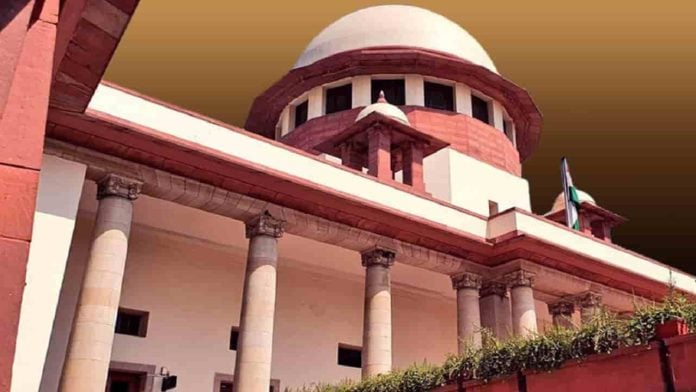The Supreme Court on Thursday adjourned to July 17, the bail petition of Abdul Razak Peediyakkal, an alleged member of the Popular Front of India (PFI), who was arrested by the Enforcement Directorate (ED) in connection with a money laundering case.
Appearing for ED, Additional Solicitor General S.V. Raju vehemently opposed Peediyakkal’s bail application, stating that his coming out on bail would pose a threat to the security of the nation.
The Bench of Justice A.S. Bopanna and Justice M.M. Sundresh, however, disagreed with the ASG and said that the nation was not that weak.
Noting that the nation was quite strong, the top court of the country said there was no reason to believe that people could destroy it in any case. It further said that the ASG should refrain from demonising it every time by saying such things, adding that when the time would come, people would themselves answer this.
Noting that the petitioner was not a flight risk person, the Bench inquired Raju about bail conditions which would not allow him to leave the country.
It further asked the ASG the reason to keep the petitioner behind the bars when he has already spent a year inside jail.
The ASG said there were protected witnesses and if Peediyakkal was out, those witnesses may turn hostile. He further contended that some witnesses were associated with PFI and that Peediyakkal was capable of threatening them.
Putting forward his arguments, Raju mentioned a case, where people escaped the country through Nepal, even after their passports were taken. He said it became very difficult to monitor such people since they had many secret places.
The Apex Court then asked that when all other accused in the matter were out on bail, why should Peediyakkal be kept behind the bars.
It observed that since the alleged PFI member was living abroad, it was possible that he could have collected money and given it to the banned organisation. However, there was no proof to directly link him to the organisation, it added.
Representing the petitioner, Senior Advocate Siddharth Dave contended that his client would report to the court, NIA or ED.
The top court of the country then told Dave that his client could report to the police or whichever authority twice in a week.
Putting forward his arguments, Raju said that during the tribunal proceedings to ban PFI, they had come across data, which was very scary.
He alleged that PFI had paramilitary personnel in their organisation, who conducted parades and threatened people. He emphasised that it was a ‘very, very dangerous organisation’.
The Apex Court then asked the ASG to find out how many protected witnesses were involved in the matter and inform the court about it on Monday.
It further directed Raju to apprise the court on the progress of trial and adjourned the case till July 17.
On September 27, 2022, the Union government had banned Muslim political organisation, the Popular Front of India (PFI) and several of its associates under the stringent provisions of the Unlawful Activities (Prevention) Act, 1967, for their alleged involvement in terror-related activities.
Besides PFI, the Centre had also banned the Rehab India Foundation (RIF), the Campus Front of India (CF), the All India Imams Council (AIIC), the National Confederation of Human Rights Organisation (NCHRO), the National Women’s Front, the Junior Front, the Empower India Foundation and the Rehab Foundation, Kerala under UAPA.
The Union Ministry of Home Affairs issued a notification, stating that PFI and its affiliates have been found to be involved in subversive activities and disturbing the public order.
It said their acts undermined the country’s constitutional set-up and enforced a terror-based regressive regime.
The notification further said that PFI and its affiliates continued to propagate anti-national sentiments and radicalise a particular section of society, with the intention to create “disaffection” against the country.
It added that in view of the above reasons, it was necessary to declare PFI and its associates or affiliates or fronts to be an unlawful association with immediate effect.
The Ministry also said in the notification that some of the PFI’s founding members were leaders of the Students Islamic Movement of India (SIMI), while PFI also had linkages with the Jamaat-ul-Mujahideen Bangladesh (JMB).
Stating that both JMB and SIMI were proscribed organisations, the notification said that there had been many instances of international linkages of PFI with global terrorist groups such as the Islamic State of Iraq and Syria (ISIS).
It further claimed that PFI and its associates or affiliates or fronts have been working covertly to increase the radicalisation of one community by promoting a sense of insecurity in the country, which was substantiated by the fact that some PFI cadres have joined international terrorist organisations.


